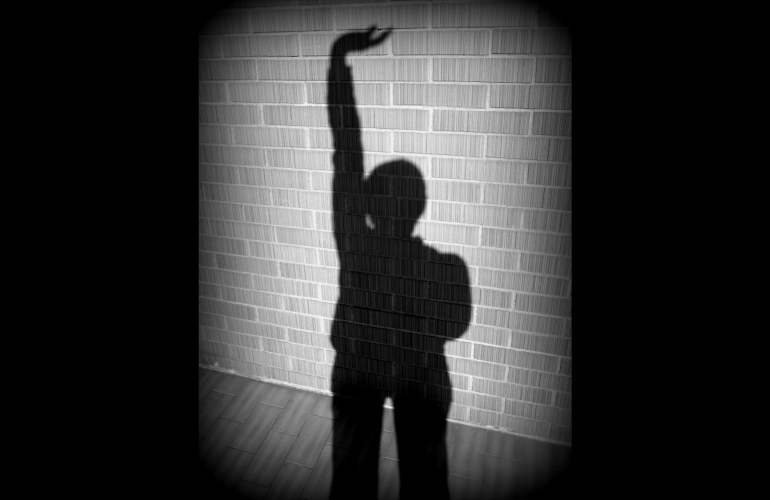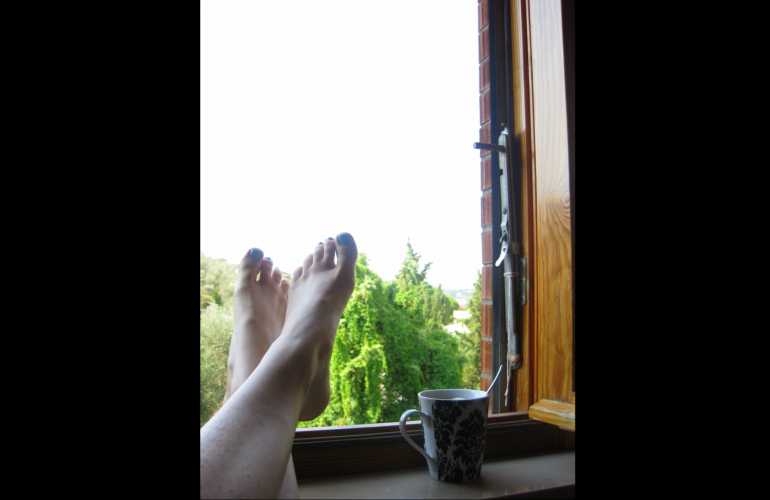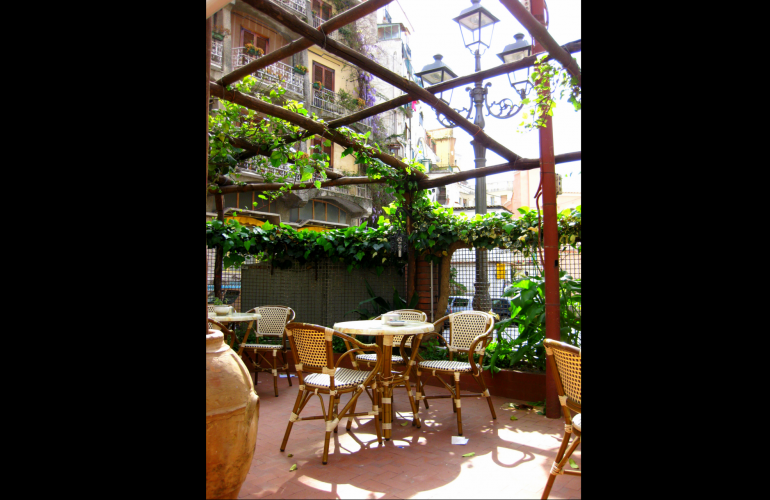The sky shifts and stretches, and sunlight spills through the elongated gaps. It’s still too hazy to see the mountains, but light is reflecting off a hundred smoking chimneys and dancing on a million silvered olive leaves, and I think I might take my coffee—a regrettable but necessary second cup—out into the joy of it. I make it nearly two steps onto the balcony before my Texas bones start shaking in protest. Sunny or not, this is still the crux of winter, and I in my morning zombie trance am no match for the cold.* I retreat to the kitchen table, backhand a swath of crumbs out of my way, and sigh long and deep.
* Disclaimer: I realize that my calling a sunny Mediterranean winter “cold” is causing some of you to smash your heads repeatedly into your desks right now. I apologize for any resulting trauma and invite you to come sunbathe on our balcony at your convenience.
I’m in so many mental ruts right now, ruts within ruts, that it’s hard to distinguish which one is suddenly closing the walls of our kitchen around me. My eyes wince across the trail of soup pots and mixing bowls waiting to be washed. In the next room, laundry is draped over radiators to dry; another load sloshes in the washer, and my lungs feel like they’re wrapped in damp socks. Chores multiply like rabbits around here in the winter, and beating them off with a broom could be my full-time job. I wonder if it is. Last week while reading a picture dictionary to Sophie, I asked her if she knew any janitors, and she answered brightly, “Yes, you!” And yet our floors still feel like syrup and sand and one has to use parkour to navigate the guest room and mealtimes feel like punishment.
This is a doozy of a rut, this resentment of my domestic life and its endless repetitions of damage control. Home should feel like sanctuary, so I try to distract myself from the messes spawning like video game villains across my universe. However, distraction turns out to be its own form of rut; my mind wanders and flits until I realize with a jolt that I haven’t felt my own soul’s pulse in weeks.
I should have picked up on it earlier, the very minute that the dust congregating on our windowsills became a universe to me. Even as I say that though, I recognize that I have no easy answers for how to push back at the shinkwrap, how to keep filling my lungs with the air of a wide wide world while the four walls of our house clamor so loudly and the cold seals them shut.
Yesterday, I read a bit from two women whose words light fires inside of me, and for those ten minutes, my heart remembered how to move again. It pumped away my zombie fog and stretched out, out, beyond our sleepy Italian valley and the mountains standing guard, out across oceans, out past the stars. My universe expanded to make room for eternity, and the only thing I could ask beyond that is the strength to hold onto it more than ten minutes at a time.
I’m writing now from the bittersweet place of awareness without answers, trapped in a rut with eyes full of stars. I know who I am—the true me, the eyes-wide-open me who isn’t afraid her life’s work will boil down to laundry—but I’ve never worked out just how to keep those fires lit. One of Shame’s favorite adjectives for me is “selfish,” and I hear it now in the clacking of the keys while the soup pots go unwashed. I hear it in the turning pages of a book and in the stillness of attempted meditation, in any pursuit of my own personal peace. The clock becomes a rushing sound in my ears, and I scramble to get back to the duties that pile around my vision like blinders.
Or… I write, because Shame is not going to stop advancing any sooner than the laundry pile is, and if I’m willing to hinge my worth on damage control, why not start with the soul-damage? Why not battle to climb out of the rut instead of battling to keep it mess-free?
This isn’t just a rhetorical question; I know the answer, and the answer is Shame itself. Shame is the bully pinning us down while taunting, “Why don’t you just get up?” Shame is the dictator citing himself as the source of truth. Shame is the fear profiteer. Shame is what makes us feel unworthy to fight the burden of unworthiness, and how do you pull yourself up from that if not by looking the bully square in the eye, saying his name out loud—S C R E A M I N G it if necessary!—and informing him that he no longer calls the shots?
Here is what I know to be true:
- No one will die if the dishes go unwashed until tomorrow (although I reserve the right to boycott the kitchen in the meantime). Repeat: No one will die.
- My soul will die, slow and purpling like frostbite, if I don’t allow her the unhurried time she needs to connect with God, refresh her focus, and do what her heart is nudging her to do.
- Sometimes that will mean half an hour; sometimes it will mean the entire day.
- That is not selfish.
- It’s not selfish because a whole and peaceful me brings direct good to the world around me, even the little one within our walls, while a resentful and distracted me spreads negativity.
- It is much easier to keep eternity in my perspective when I’m prioritizing the eternal things—soul-ties, relationships, art, justice, kindness—and letting Mount Laundry take whatever energy I have left over. Not the other way around.
- Shame has no redeeming characteristics. Not a one. I will gain nothing by listening to it, ever. That voice sneering at me that I’m selfish and worthless and a big fat failure? deserves no acknowledgement other than a big fat ass-kicking.
- Shame might masquerade as a bully or a dictator, but I can always recognize Truth; it’s the one shifting and stretching my mind, spilling light through the elongated cracks, lighting fires, imparting courage.
~~~
What do you know to be true despite Shame telling you otherwise?




